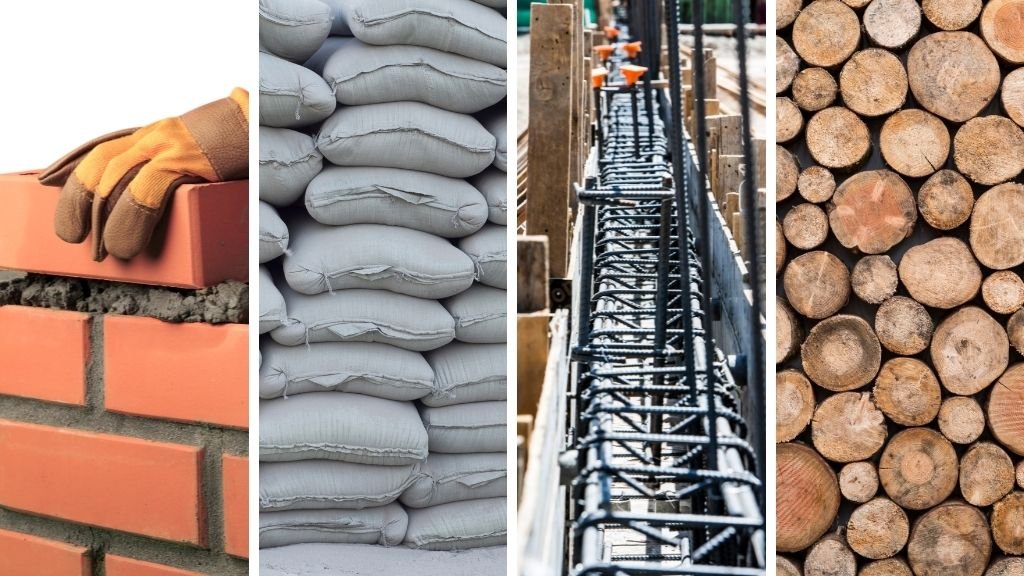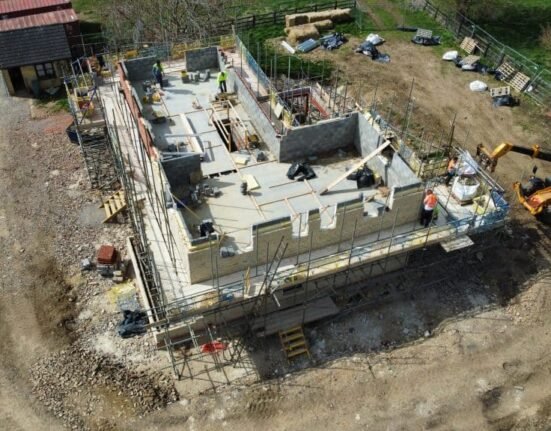Choosing the right building materials is crucial for the success and durability of any construction project. Whether you are working on a residential, commercial, or industrial structure, selecting high-quality materials ensures safety, efficiency, and long-term performance. Understanding the characteristics and applications of different building materials helps you make informed decisions and achieve the best results.
1. Concrete
Concrete is one of the most versatile and widely used building materials. It is made from a mixture of cement, water, sand, and aggregates. Its strength and durability make it ideal for foundations, walls, floors, and structural components. Reinforced concrete, which includes steel bars or mesh, provides added tensile strength for heavy-load applications.
2. Steel
Steel is a preferred material for structural frameworks due to its high strength-to-weight ratio and durability. It is commonly used in skyscrapers, bridges, and industrial buildings. Structural steel offers excellent load-bearing capacity, while stainless steel resists corrosion, making it suitable for exterior and moisture-prone environments.
3. Wood
Wood remains a popular building material for residential construction due to its affordability, ease of use, and aesthetic appeal. Hardwood varieties, such as oak and mahogany, are durable and suitable for flooring and cabinetry. Softwood, like pine, is commonly used for framing and paneling. Engineered wood products, including plywood and laminated timber, provide enhanced strength and stability.
4. Brick
Brick is a durable and fire-resistant material used in walls, facades, and pavements. Made from clay or concrete, bricks are available in various sizes and finishes. Clay bricks offer natural insulation and aesthetic charm, while concrete bricks are more affordable and provide structural integrity.
5. Glass
Glass is essential for modern architecture, providing natural light and aesthetic appeal. It is used for windows, doors, facades, and partitions. Tempered glass offers increased safety due to its shatter-resistant properties, while laminated glass enhances sound insulation and security.
6. Stone
Natural stone is valued for its strength, durability, and timeless beauty. Common types include granite, marble, and limestone. Stone is used for cladding, flooring, and decorative features. While heavy and costly, it adds a luxurious and lasting finish to buildings.
7. Insulation Materials
Proper insulation enhances energy efficiency and indoor comfort. Popular insulation materials include fiberglass, mineral wool, and foam boards. Fiberglass is affordable and easy to install, while foam boards provide high thermal resistance and moisture protection. Eco-friendly options like cellulose and sheep wool offer sustainable alternatives.
8. Roofing Materials
Selecting the right roofing material protects against weather elements and ensures structural integrity. Asphalt shingles are economical and easy to install, while metal roofing provides durability and fire resistance. Clay and concrete tiles offer longevity and a distinctive appearance, making them suitable for both residential and commercial buildings.
9. Plastic and PVC
Plastics and PVC materials are widely used for plumbing, insulation, and cladding. PVC pipes are lightweight, corrosion-resistant, and ideal for water and drainage systems. Plastic composite materials are also used for decking and exterior trim due to their durability and low maintenance.
10. Sustainable Materials
With the growing emphasis on environmental responsibility, sustainable materials are becoming increasingly popular. Bamboo is a renewable resource used for flooring and structural components. Recycled metal and reclaimed wood reduce waste and add unique character to projects. Green insulation, like hempcrete, offers eco-friendly thermal performance.
Choosing the Right Materials for Your Project
When selecting building materials, consider factors such as cost, durability, maintenance, and environmental impact. Collaborate with experienced suppliers and contractors to source quality materials and ensure proper installation. Investing in the right materials enhances the longevity and performance of your structure.
Sign Up for Expert Insights
For more in-depth guidance on building materials and construction techniques, visit epci.ng. Our platform provides valuable resources, expert insights, and the latest innovations to help you succeed in your projects. Sign up today and stay ahead in the ever-evolving world of construction.







Leave feedback about this